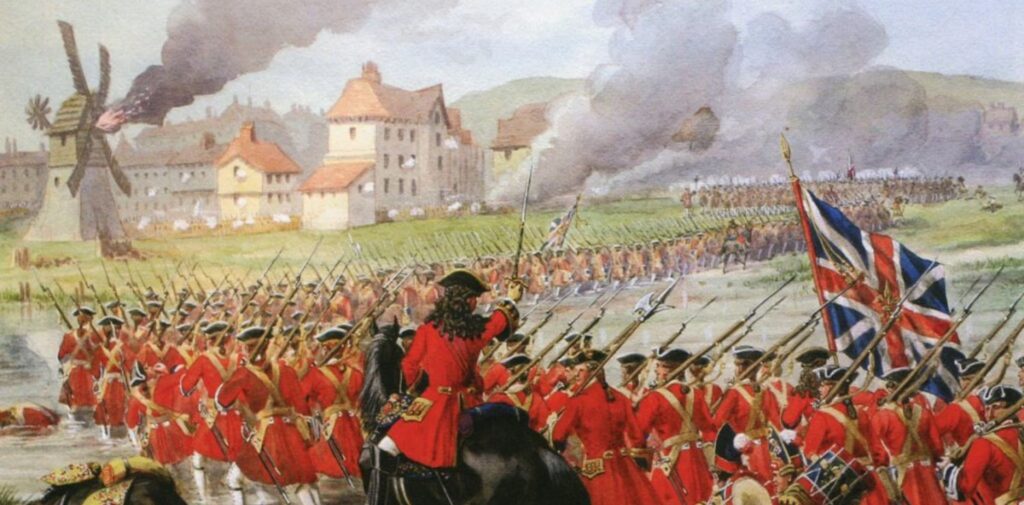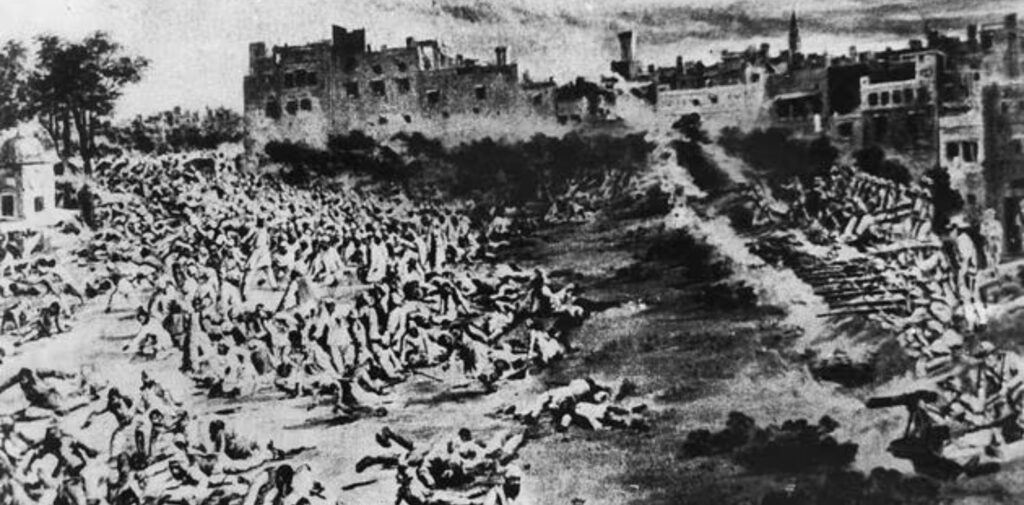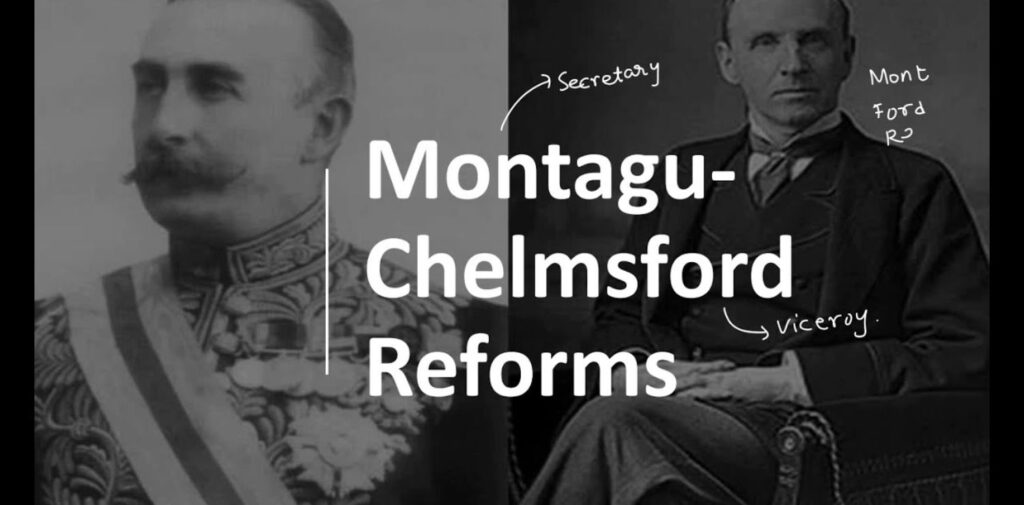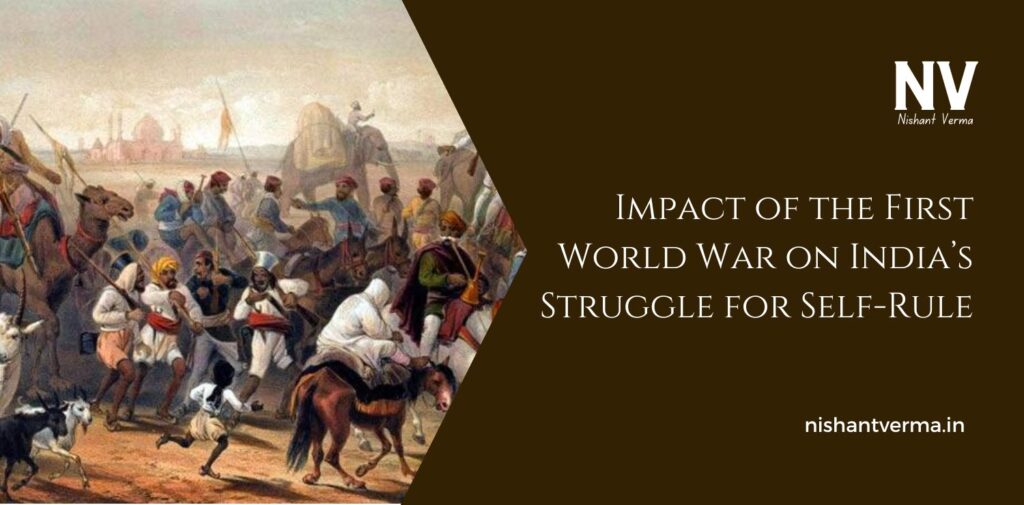The First World War, which took place between 1914 and 1918, was a major event in world history. While the war itself was fought mainly in Europe, it had a huge impact on countries all around the world. One of the countries that felt its effects deeply was India. The war played a significant role in shaping India’s fight for independence from British rule. Let’s explore how the First World War affected India’s struggle for freedom.
The British Involvement in the War
When the First World War started in 1914, India was still under British rule. The British government, which was already in control of India, decided to join the war on the side of the Allies (Britain, France, and Russia). The British needed soldiers, resources, and money for the war effort, and they turned to India for support.
India sent thousands of soldiers to fight in Europe, Africa, and the Middle East. The British also took resources like food, money, and materials from India to help fund the war. Many Indians fought bravely in the war, but they had little to no say in the decisions that affected them. The British did not offer any real reward or self-rule to India in exchange for its help during the war.

Indians Expecting Reward for Their Support
At the time of the First World War, many Indians believed that by supporting the British in the war, they might be granted more rights and a greater say in how the country was governed. Indian leaders, like those in the Indian National Congress (INC), hoped that after the war, Britain would reward India’s loyalty with more self-governance and possibly even independence.
The British had promised some political reforms in exchange for India’s support in the war. However, these promises were not kept, and this led to widespread dissatisfaction among Indians. Instead of granting India more power, the British government continued to make decisions without consulting Indian leaders.
Economic Impact of the War on India
The First World War caused serious economic problems for India. The British government took huge amounts of money, resources, and soldiers from India to fight the war. This left India’s economy in trouble.
Farmers in India were forced to grow crops for the British war effort, often leaving them with little to feed their families. Prices for basic goods like food and clothing skyrocketed, and many people faced hunger and poverty. The war also caused unemployment, as factories that were producing goods for the British war effort closed once the war ended. This led to widespread anger and frustration among the Indian population.

The Jallianwala Bagh Massacre and Its Aftermath
One of the most significant events that shook India during this period was the Jallianwala Bagh massacre. In 1919, thousands of peaceful protesters gathered in Amritsar to demand greater rights and to protest against British rule. The British officer, General Dyer, ordered his troops to fire on the unarmed crowd, killing hundreds of people and injuring many more.
The massacre shocked the entire nation. It made many Indians realize that the British were not interested in listening to their demands or treating them with respect. The event fueled anger and hatred towards the British, and it became a turning point in India’s struggle for independence.
Rise of Nationalist Movements
The hardships caused by the war, combined with the failure of the British to keep their promises, led to the rise of nationalist movements in India. Leaders like Mahatma Gandhi, Jawaharlal Nehru, and Subhas Chandra Bose became more active in the fight for India’s independence.
Mahatma Gandhi, who had been advocating for peaceful resistance, began to gain more support after the war. He led campaigns of non-violent protests, boycotts, and civil disobedience. One of the most famous movements he led was the Non-Cooperation Movement in 1920. Gandhi urged Indians to refuse to cooperate with the British government by boycotting British goods, schools, and services.
Gandhi’s philosophy of non-violence and peaceful protests gained widespread support from people of all ages and backgrounds. Many Indians felt that if they could not fight the British with weapons, they could fight with their unity, strength, and determination to make their voices heard.

The Montagu-Chelmsford Reforms
In response to the growing dissatisfaction in India, the British government made some attempts to introduce political reforms. In 1917, the British announced the Montagu-Chelmsford Reforms, which promised to grant more self-governance to India. These reforms included the establishment of a legislative council with Indian representatives and more power to the provinces.
However, these reforms were very limited. While they gave Indians some say in their own affairs, the British government still had ultimate control over important matters. Many Indian leaders felt that these reforms were not enough and that India deserved full independence, not just minor changes.
Conclusion: Impact of the First World War on India’s Struggle for Self-Rule
The First World War had a lasting impact on India’s struggle for self-rule. While India’s support for the British during the war did not lead to the rewards the country had hoped for, it did awaken a sense of unity and determination among Indians. The war also highlighted the problems caused by British rule, such as economic hardship and social unrest.
The events following the war, including the Jallianwala Bagh massacre and the rise of nationalist movements, pushed India closer to independence. Leaders like Gandhi and Nehru gained more followers, and the demand for freedom became stronger.
By the time the war ended in 1918, India’s desire for independence was stronger than ever. The First World War had shown the Indian people that they could not rely on the British to give them the rights and freedoms they deserved. It was clear that India would have to fight for its independence, and that fight would continue for several more decades until India finally gained freedom in 1947.
In conclusion, the First World War played a key role in shaping India’s path to independence. It exposed the harsh realities of British rule, increased nationalist feelings, and gave rise to leaders who would later lead the country to freedom. The war was a turning point, and its impact on India’s struggle for self-rule cannot be overlooked.




